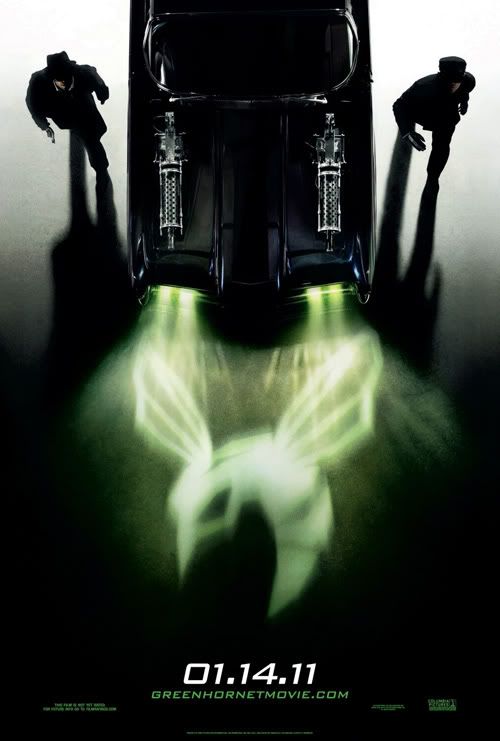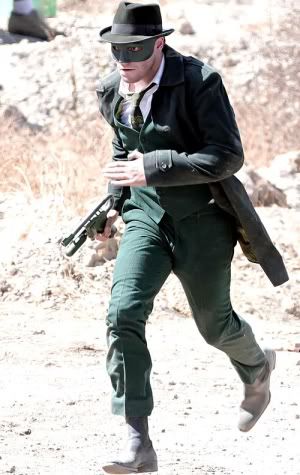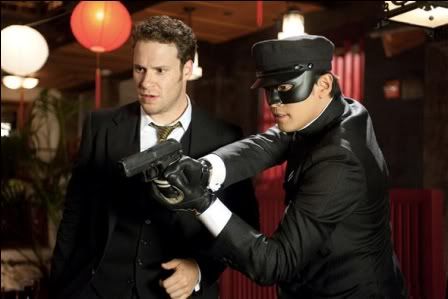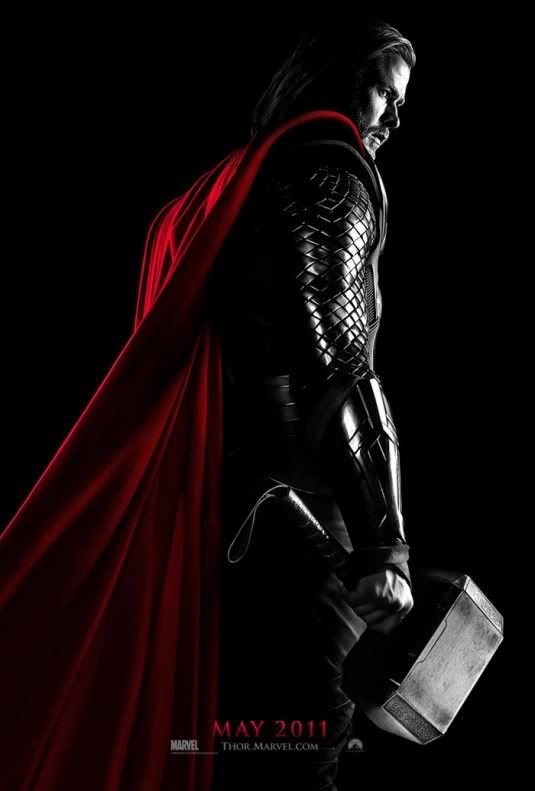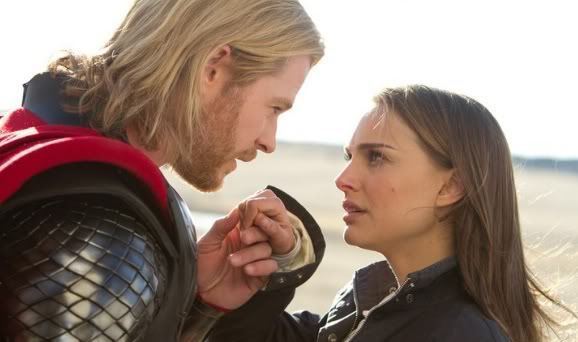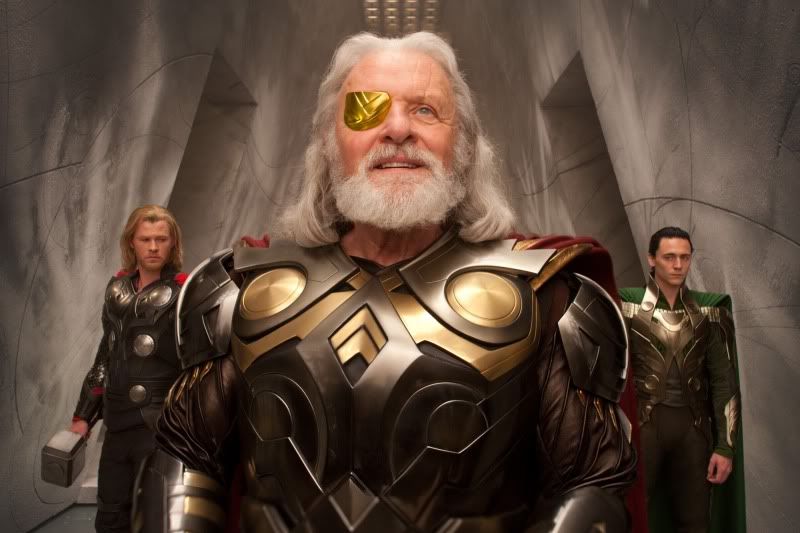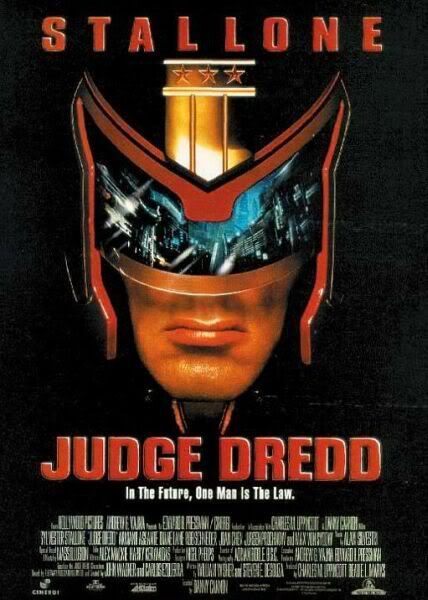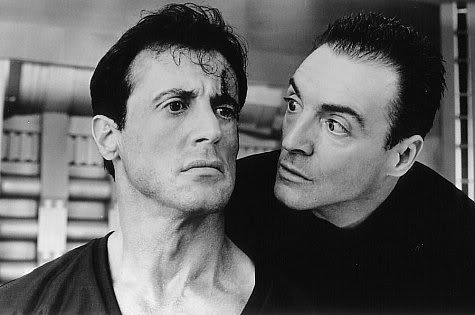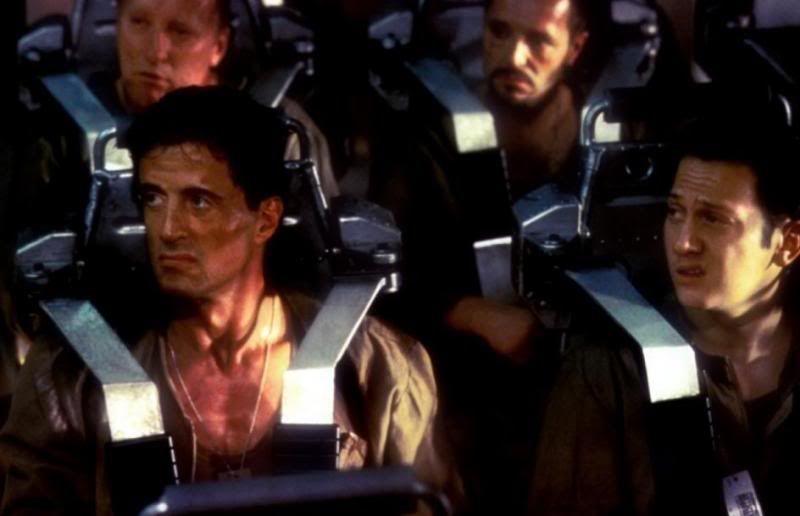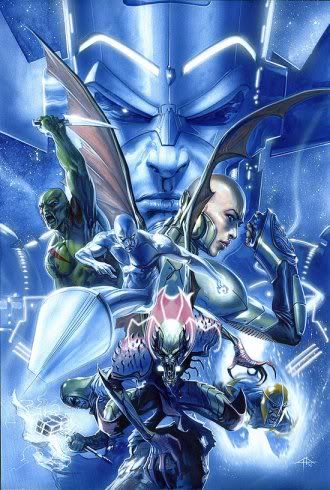I miss pulp adventure stories. I miss uncontrived, straight-forward yarns with two-fisted, dashing heroes working against megalomaniacs to rescue leggy dames. Yes, these stories were simple and could be campy or hammy or just plain boring at times, but their simplicity was a strength, their tales unfettered by an artifice of philosophy or an undercurrent of cynicism. Films like Raiders of the Lost Ark and The Rocketeer understood that broad, epic tales don’t need a lot of inscrutable layers or nuances of postmodern construction to be interesting, exciting and fun. In their tradition comes Captain America: the First Avenger.
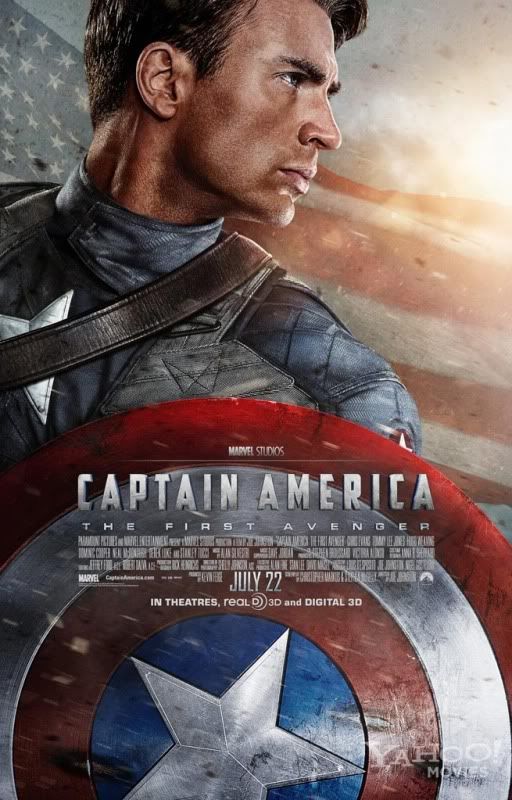
The year is 1942. War is rampaging across Europe and, unbeknownst to the Allied powers, a particularly bent Nazi genius has decided he’s been chosen by the gods to conquer the planet. Meanwhile, in Brooklyn, a skinny, asthmatic and somewhat nervous kid named Steve Rogers is trying – and failing – to join the Army. At his fifth attempt, a kindly if somewhat eccentric doctor asks why a kid with his conditions is so eager to kill Nazis. “I don’t want to kill anyone,” Steve replies. “I just don’t like bullies.” That doctor gives him the opportunity to become a super-soldier, and the results of the experiments cause Steve to be reborn as Captain America.
So Steve is a nice guy. He’s a scrawny, smart and brave young man who wants to do his part to take down the biggest bully the world has ever seen but his body isn’t living up to the demands of his spirit. Who he is – the 98-pound weakling – is very different from who he wants to be. And every time he tries to face this disconnect, cross his Shadow as it were, he’s slapped down by either the bureaucracy or the closest bully. And then, he gets his chance. He crosses his Shadow. The question is, does this transformation change him?

Not sure what I like more: wearing fatigues over the costume, or the aw-shucks grin.
It doesn’t, and that’s what makes Captain America at once a failure and a success as a character. In terms of character growth and progression, once the procedure is complete, he’s done. He has to get used to his new proportions, strength and agility of course, but he requires no other growth to be the man he’s always wanted to be and his personality doesn’t change at all. He’s still sweet, still shy around girls, still willing to do his part and still intolerant of blind ignorance and hate. Removing his physical flaws in an artificial way, in lieu of a more gradual and familiar arc, has lead to anything interesting about the character also being removed.
At least, that’s how it should work. He should stand there as a big beefy wish fulfillment fantasy for fat Americans in the audience itching to punch out terrorists, or failing that, the nearest brown person. Yet, Captain America is actually not all that American, when you think about it. Many Americans now are belligerent, loud, violently opinionated and fervently religious folk who are primarily concerned with shouting down anybody who disagrees with the opinions fed to them by talking heads in soapbox programs that masquerade as news, and the world’s perception of the country, for better or worse, has put this greasy face on the country. Captain America, on the other hand, stays soft-spoken, confident without being arrogant, more concerned about the well-being of others than himself and uses the power he’s been given with wisdom and precision. In other words, he is what Americans could have been, and perhaps could still be if they’re willing to look past their own selfishness and strive for something better.

Marvel’s own Band of Brothers.
That is how the character of Captain America succeeds, and Chris Evans does a fantastic job of conveying that to the audience from beginning to end. The best part is he’s not setting out to be a paragon of decency, no more so than he’s setting out to be the guy that punches out Hitler. We get a sense of gentleness about Steve due to Chris’ performance and it’s this feeling that sets him apart from the other Marvel heroes we’ve met. He’s no less heroic, he’s just heroic in a different way. The other characters turn in great performances, from Tommy Lee Jones’ taciturn Army commander to Hugo Weaving’s calculating and cruel turn as the Red Skull. And while Hayley Atwell does a phenomenal job ensuring her character rises above simply being ‘the girl’ in the picture, at least once most audience members (and characters!) will find themselves thinking only “Hommina, hommina, hommina.”
Director Joe Johnston is very much in his element with this sort of film, and the quality of it shows. Granted, these qualities may be considered by some as belonging to throwbacks, to less intellectual fare and stories that don’t have the ‘mature’ sensibilities of the works by, say, Christopher Nolan. However, Captain America: The First Avenger doesn’t seem any less intelligent than any of the other summer flicks out there, and in fact goes about telling its story in a clean and straightforward manner without dressing things up too much with effects or spectacles. It’s not a terribly cerebral picture, sure, but it cares about a good story with good characters, and that’s more than I can say for Green Lantern or Transformers 3.

“Superheroes are the disease… and I… am the cure!”
Stuff I Liked: No modern music, and a fantastic score by Alan Silvestri. All cool gizmos and disposable goons you’d expect from a pulp adventure.
Stuff I Didn’t Like: Why are the German characters speaking in English all the time? I also felt Schmidt could have used a bit more in terms of motivation or development other than being the token crazy evil mastermind.
Stuff I Loved: Marvel’s subtlety in its tie-ins – a vast improvement over Iron Man 2. The earnest performances of the cast. The tightness of the screenplay. The clean shots of the action, the sweeping sense of scale and the emotion packed into a few key scenes, particularly the ending.
Bottom Line: Definitely worth seeing and for more than just the lead-up to The Avengers. Speaking of which, stay through the credits. I probably don’t have to tell you to do that anymore but I just did. It’s worth it.


